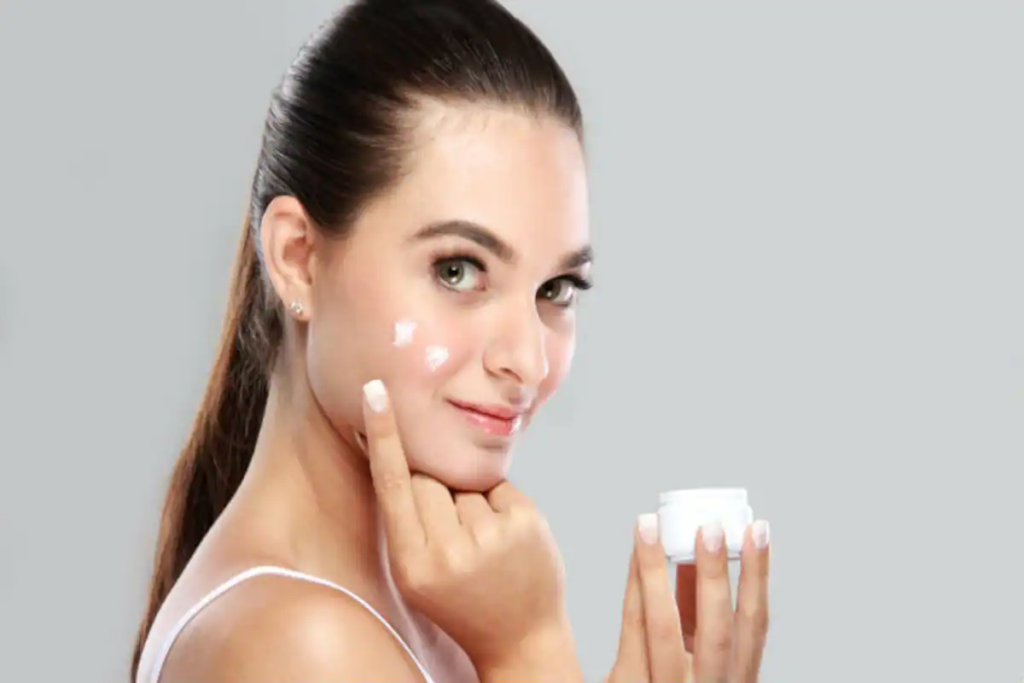
In the pursuit of healthy and radiant skin, the significance of moisturizers cannot be overstated. These hydrating wonders have become an essential component of skincare routines, delivering a surge of moisture that locks in hydration and shields the skin from external aggressors. Let’s delve into the world of moisturizers, understand their types, benefits, and how to choose the perfect one for your unique skin needs.
Table of Contents
- Introduction
- The Science of Moisture
- Types of Moisturizers
- Creams
- Lotions
- Gels
- Ointments
- Serums
- Oil-Based Moisturizers
- The Importance of Moisturizing
- Choosing the Right Moisturizer
- Skin Type Matters
- Ingredients to Look For
- Consider the Season
- Incorporating Moisturizers into Your Routine
- Common Misconceptions About Moisturizers
- Hydration from Within: Diet and Water Intake
- DIY Moisturizers: Yay or Nay?
- Moisturizing for Different Ages
- Teens and Adolescents
- Adults
- Seniors
- Targeted Solutions: Eye and Body Moisturizers
- Moisturizing for Special Skincare Concerns
- Acne-Prone Skin
- Sensitive Skin
- Aging Skin
- Dry and Dehydrated Skin
- A Step Beyond: Advanced Skincare Techniques
- Natural vs. Synthetic Moisturizers
- Conclusion
Introduction
Imagine a skincare routine devoid of moisturizers – the canvas of your skin would be parched and dull. Moisturizers are the unsung heroes that restore and maintain the skin’s natural moisture barrier. In this article, we’ll take you on a journey through the intricacies of moisturizers, from their types to the role they play in achieving a healthy and radiant complexion.
The Science of Moisture
The skin’s outermost layer, known as the stratum corneum, acts as a shield against environmental factors. However, it can lose its integrity, resulting in moisture loss. Here’s where moisturizers come into play. They contain occlusive and humectant agents that seal in moisture and attract water from the environment, keeping your skin supple and hydrated.
Types of Moisturizers
Creams, lotions, gels, ointments, serums, and oil-based moisturizers – the market is flooded with options. Each type caters to different skin needs and preferences. Creams are thicker and ideal for dry skin, while lotions offer a lighter feel. Gels are water-based and suit oily skin, whereas ointments are heavy-duty and perfect for severely dry skin. Serums provide a potent dose of active ingredients, and oil-based moisturizers lock in moisture for prolonged periods.
The Importance of Moisturizing
Moisturizing isn’t just about achieving a temporary glow; it’s about fortifying your skin’s health. Regular moisturizing helps maintain the skin’s protective barrier, preventing transepidermal water loss (TEWL) and safeguarding against pollutants. Well-hydrated skin is also less prone to irritation and redness, giving you that coveted healthy complexion.
Choosing the Right Moisturizer
Selecting the perfect moisturizer requires a bit of knowledge and experimentation. Your skin type should be the guiding factor. For instance, oily skin benefits from lightweight, non-comedogenic products, while dry skin thrives with rich, creamy formulas. Ingredients like hyaluronic acid, glycerin, and ceramides are excellent choices. Also, factor in the season – lighter textures for summer and richer ones for winter.
Incorporating Moisturizers into Your Routine
Applying moisturizer isn’t a step you should skip. After cleansing and toning, gently massage your chosen moisturizer onto damp skin. This helps lock in the moisture and prepare your skin for other products. For daytime, opt for a formula with built-in sun protection.
Common Misconceptions About Moisturizers
Misconception #1: Moisturizers Cause Breakouts – False! The right moisturizer won’t clog pores. Misconception #2: Oily Skin Doesn’t Need Moisturizing – Not true! All skin types benefit from moisturization. Misconception #3: Moisturizers Replace Serums – No, they complement each other by hydrating and treating simultaneously.
Hydration from Within: Diet and Water Intake
While external moisturization is vital, internal hydration matters too. A balanced diet rich in water-rich foods, paired with adequate water intake, reflects positively on your skin’s health. Foods high in antioxidants, omega-3 fatty acids, and vitamins contribute to a radiant complexion.
DIY Moisturizers: Yay or Nay?
Creating DIY moisturizers can be fun, but it’s essential to ensure the ingredients used are suitable for your skin type. Natural ingredients like aloe vera, honey, and coconut oil can be great additions. However, DIY moisturizers may lack the stability and efficacy of professionally formulated ones.
Moisturizing for Different Ages
The skincare needs evolve as we age. Teens and adolescents should focus on oil-free and non-comedogenic moisturizers. Adults benefit from ingredients like retinol and peptides, while seniors should look for moisturizers with added antioxidants and skin-repairing agents.
Targeted Solutions: Eye and Body Moisturizers
The delicate skin around the eyes requires special attention. Eye creams with gentle formulas and ingredients like hyaluronic acid help combat fine lines and puffiness. For the body, thicker creams or body butters provide intense moisture, particularly for areas prone to dryness.
Moisturizing for Special Skincare Concerns
Different skin concerns necessitate tailored moisturizing approaches:
- Acne-Prone Skin: Lightweight, oil-free, non-comedogenic formulas with salicylic acid or hyaluronic acid.
- Sensitive Skin: Fragrance-free, hypoallergenic products with gentle ingredients like oatmeal and chamomile.
- Aging Skin: Rich creams with retinol, collagen-boosting peptides, and antioxidants.
- Dry and Dehydrated Skin: Thick creams with ingredients like shea butter, glycerin, and ceramides.
A Step Beyond: Advanced Skincare Techniques
Serums, boosters, and facial oils can be layered beneath moisturizers for enhanced results. These products offer concentrated ingredients that target specific concerns, such as brightening, firming, or soothing.
Natural vs. Synthetic Moisturizers
Both natural and synthetic moisturizers have their merits. Natural options often contain fewer additives, making them suitable for sensitive skin. Synthetic formulations, on the other hand, can offer advanced ingredients and targeted solutions. Ultimately, it’s about finding what works best for you.
Conclusion
Moisturizers are the cornerstone of a successful skincare routine. They offer more than just hydration – they provide protection, nourishment, and the key to maintaining youthful and vibrant skin. Whether you have oily, dry, or combination skin, there’s a perfect moisturizer waiting to enhance your skincare journey.



